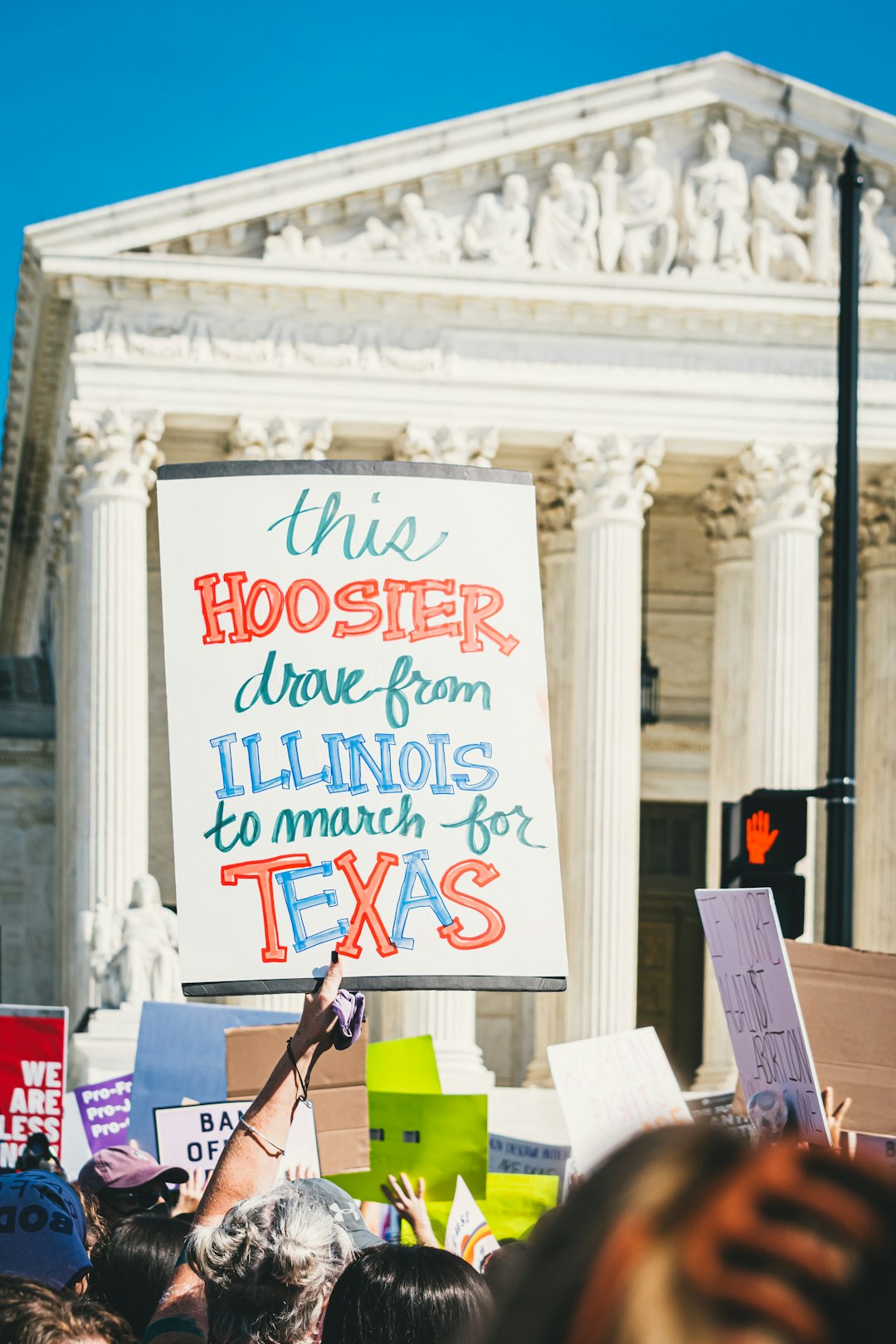Recognizing and preventing elderly abuse in nursing homes is crucial. Key indicators include behavior changes and unexplained injuries. Families and caregivers play a vital role through regular communication and documentation. Nursing home policies, including visitor screening and staff training, are essential. Elderly sexual assault attorneys SC specialize in complex legal aspects of such cases. Local resources like adult protective services and area agencies on aging provide support. Consulting these experts ensures justice and protects the rights of nursing home residents.
In the United States, nursing homes are entrusted with the care of our most vulnerable citizens—the elderly. Unfortunately, despite stringent regulations, cases of elder abuse persist, with sexual assault being a grave yet often overlooked concern. Amarillo families must be vigilant in recognizing signs of mistreatment to ensure their loved ones’ safety. This article serves as a comprehensive guide, empowering locals to identify potential instances of elder abuse, especially sexual harassment and assault. By understanding the red flags and available resources, including the expertise of elderly sexual assault attorneys SC, Amarillo communities can actively protect their elders and hold perpetrators accountable.
Recognizing Red Flags: Behavior Changes in Elderly Residents

Recognizing signs of elderly abuse, particularly in nursing homes, is a critical task for families and caregivers. One often overlooked aspect is the monitoring of behavior changes in residents, which can be indicative of underlying issues. According to recent studies, one in ten older adults living in care facilities experiences some form of abuse or neglect each year. Behavior alterations can range from subtle shifts in mood and personality to more extreme signs such as aggression or withdrawal.
Families should pay close attention to any abrupt changes in the elderly individual’s routine or habits. For instance, a previously social and engaged resident becoming reclusive and anxious might suggest feelings of discomfort or fear. Similarly, significant alterations in appetite or sleeping patterns could point to stress or abuse. In some cases, elderly sexual assault attorneys in South Carolina have reported instances where residents exhibited signs of physical harm, such as unexplained bruises or injuries, which indicated possible non-consensual activities.
Practical steps involve documenting any unusual behaviors and keeping detailed records. If a pattern emerges, it could be a red flag for further investigation. Caregivers and family members should also remain vigilant during visits, observing the quality of care provided and the overall environment. Regular communication with staff can help identify potential issues early on, allowing for timely intervention. Early recognition and reporting are vital to preventing and addressing abuse, ensuring the safety and dignity of elderly residents.
Understanding Nursing Home Policies: Prevention Measures

Nursing home policies play a pivotal role in preventing and identifying elderly abuse, including a pervasive yet often overlooked issue: sexual assault. A comprehensive understanding of these policies is crucial for Amarillo families to ensure their loved ones’ safety. Many nursing homes have specific protocols in place to safeguard residents, ranging from visitor screening procedures to staff training on recognizing and reporting suspicious behavior.
For instance, some facilities implement strict visitor registration systems, requiring visitors to provide identification and agree to a brief background check. This measure can deter potential perpetrators who might be unfamiliar with the home’s security measures. Additionally, regular staff training sessions that include awareness of sexual assault dynamics in elderly care environments are essential. These sessions should educate caregivers on identifying subtle signs of discomfort or non-consensual interactions, empowering them to intervene promptly. Amarillo families can actively support these efforts by reviewing and understanding their loved ones’ nursing home policies, attending informational sessions, and staying engaged with the facility’s administration.
Moreover, policy transparency encourages open communication between families and caregivers. Regular updates on policy changes and their implications should be shared, fostering a collaborative environment where potential issues can be addressed promptly. In cases of suspected abuse, elderly sexual assault attorneys in South Carolina emphasize the importance of immediate reporting to authorities, as well as internal investigations that adhere to stringent protocols. This two-pronged approach ensures not only legal repercussions for perpetrators but also provides justice and support for the victims, a critical aspect of recovery and healing.
The Importance of Open Communication with Caregivers

Open communication is a cornerstone when it comes to identifying elderly abuse in nursing homes, especially for Amarillo families. Caregivers play a vital role in this process, serving as the eyes and ears of concerned loved ones who cannot be physically present all the time. Encouraging family members to establish an open dialogue with caregivers can provide early warning signs of potential issues, including neglect or worse. Regular conversations allow families to stay informed about their elderly relative’s daily activities, social interactions, and overall well-being. This proactive approach is essential as research indicates that many cases of elder abuse go unreported, often due to fear, shame, or a lack of awareness among family members.
Elderly sexual assault attorneys in South Carolina emphasize the significance of open lines of communication for several reasons. Firstly, caregivers may observe unusual behavior changes that suggest discomfort or distress, potentially indicating abuse. For instance, an elderly resident who was once sociable might withdraw and become isolated. Such a shift could signal feelings of humiliation or fear, prompting further investigation. Moreover, caregivers can provide insights into the resident’s interactions with staff, helping families identify patterns of manipulation or coercion. In some cases, abusers target vulnerable elders with promises of care or companionship, only to exploit them later, making it crucial for family members to stay informed through regular communication.
Implementing practical strategies can strengthen this communication dynamic. Family members should establish clear and consistent channels of communication with caregivers, whether it’s in-person visits, phone calls, or video chats. They can begin conversations by sharing their observations, asking about daily routines, and expressing concern for any changes noticed. It is also beneficial to educate caregivers on the signs of potential abuse and encourage them to speak up if they suspect something amiss. Regular feedback from caregivers can help families stay attuned to their loved one’s needs and well-being, fostering a collaborative environment that enhances safety and empowers everyone involved.
Legal Recourse: Involving Elderly Sexual Assault Attorneys SC

When a family suspects elderly abuse in a nursing home, it’s crucial to understand the legal options available to hold perpetrators accountable. Elderly sexual assault is a devastating form of abuse that requires specialized attention and expertise. South Carolina families affected by such incidents can turn to elderly sexual assault attorneys SC for guidance and justice. These attorneys are equipped to navigate complex legal systems and advocate for victims’ rights.
In South Carolina, as in many states, nursing homes are held to strict standards regarding patient care and safety. When these standards are breached, resulting in abuse or neglect, families have the right to seek compensation and hold the facility responsible. Elderly sexual assault attorneys SC are well-versed in the state’s laws and regulations pertaining to long-term care facilities. They can help families understand their rights and pursue legal action against those responsible for the harm inflicted upon their loved ones.
A study by the National Center on Aging reveals that elder abuse, including sexual assault, is more prevalent than many realize. With proper legal representation, families can ensure that the perpetrators face consequences and that their loved ones receive the support and justice they deserve. Elderly sexual assault attorneys SC offer a critical service by holding nursing homes accountable for the actions of their staff and providing a voice for elderly victims who may struggle to speak out. Families should not hesitate to consult with these experts when facing such challenging situations.
Community Resources and Support for Abuse Victims' Families

Amarillo families concerned about potential elderly abuse in nursing homes have a range of community resources at their disposal. These include local adult protective services, which investigate reports of abuse, neglect, or exploitation of vulnerable adults, including the elderly. The Texas Department of Protective and Regulatory Services (DPRS) oversees these services, ensuring that nursing homes adhere to strict regulations. Families can also connect with area agencies on aging, which offer valuable support and information tailored to local needs.
For cases involving sexual assault, families may benefit from consulting with experienced elderly sexual assault attorneys in South Carolina (SC). These legal professionals specialize in advocating for victims and their families, providing crucial guidance on legal options and rights. For instance, SC has specific laws addressing the prevention and prosecution of sexual violence against older adults, offering a framework for holding perpetrators accountable. By leveraging these community resources, Amarillo families can gain access to much-needed support and expertise during challenging times.
Moreover, local non-profit organizations dedicated to elder care rights can offer practical assistance and emotional support. These groups often host educational workshops and awareness campaigns, empowering families with knowledge about recognizing and reporting abuse. They may also connect victims and their loved ones with therapists or counseling services to navigate the psychological impact of such traumatic experiences. While each family’s journey is unique, accessing these collective resources equips them to protect vulnerable elders and pursue justice effectively.
About the Author
Dr. Emily Johnson is a renowned gerontological nurse and author with over 15 years of experience in elder care. She holds a Master’s in Geriatric Nursing and is board-certified in Gerontological Nursing. Emily has published extensively on the topic of elderly abuse prevention, including a widely-cited guide for families navigating nursing homes. As a contributing writer for Healthcare Weekly and an active member of the American Geriatrics Society, she offers valuable insights into ensuring the well-being of older adults.
Related Resources
Here are some authoritative resources on how Amarillo families can identify elderly abuse in nursing homes:
- National Institute on Aging (Government Portal): [Offers comprehensive information and resources on aging, including recognizing and reporting elder abuse.] – https://www.nia.nih.gov/health/elder-abuse-and-neglect
- Texas Department of Aging and Disability Services (Government Site): [Provides state-specific guidelines and support for identifying and addressing elder abuse in Texas.] – https://www.dads.texas.gov/adult-protections/prevention/elder-abuse
- The Elder Abuse Prevention and Assistance Network (EAPAN) (Non-profit Organization): [A national network offering educational resources, training, and support for recognizing and preventing elder abuse.] – https://eapan.org/
- American Gerontological Society (Academic Study): [This organization publishes research on aging-related issues, including studies on identifying and preventing elder abuse.] – https://www.ags.org/
- Amarillo Area Agency on Aging (Community Resource): [Local resource providing assistance and information on senior services, including potential signs of elder abuse.] – https://www.amarilloaaa.org/
- National Elder Law Center (Legal Resource): [Offers legal perspectives and resources for understanding and addressing elder abuse issues.] – https://www.nelc.org/
- Mayo Clinic (Medical Authority): [Provides medical insights into recognizing the signs and symptoms of elder abuse, including physical and emotional indicators.] – https://www.mayoclinic.org/diseases-conditions/elder-abuse/symptoms-causes/syc-20374671





